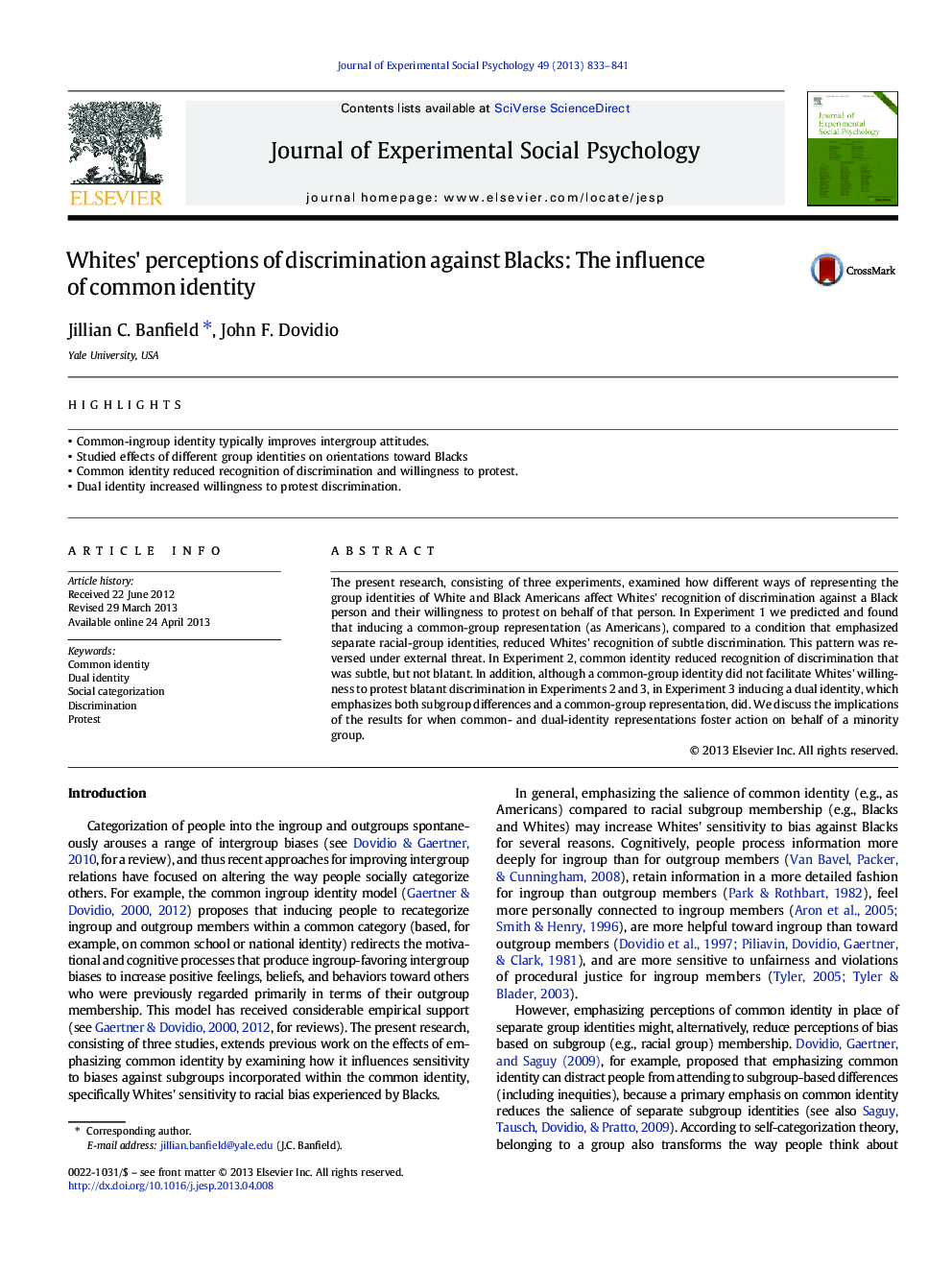| Article ID | Journal | Published Year | Pages | File Type |
|---|---|---|---|---|
| 948014 | Journal of Experimental Social Psychology | 2013 | 9 Pages |
•Common-ingroup identity typically improves intergroup attitudes.•Studied effects of different group identities on orientations toward Blacks•Common identity reduced recognition of discrimination and willingness to protest.•Dual identity increased willingness to protest discrimination.
The present research, consisting of three experiments, examined how different ways of representing the group identities of White and Black Americans affect Whites' recognition of discrimination against a Black person and their willingness to protest on behalf of that person. In Experiment 1 we predicted and found that inducing a common-group representation (as Americans), compared to a condition that emphasized separate racial-group identities, reduced Whites' recognition of subtle discrimination. This pattern was reversed under external threat. In Experiment 2, common identity reduced recognition of discrimination that was subtle, but not blatant. In addition, although a common-group identity did not facilitate Whites' willingness to protest blatant discrimination in Experiments 2 and 3, in Experiment 3 inducing a dual identity, which emphasizes both subgroup differences and a common-group representation, did. We discuss the implications of the results for when common- and dual-identity representations foster action on behalf of a minority group.
